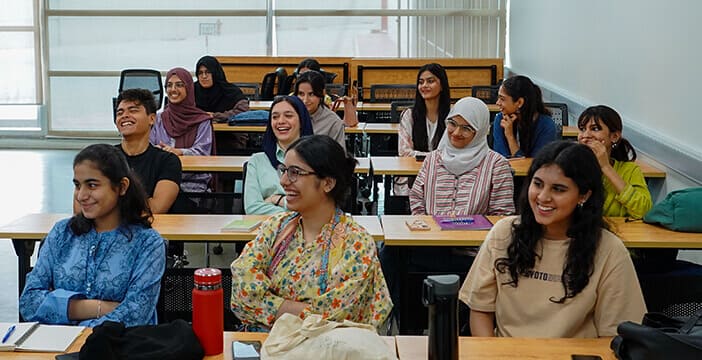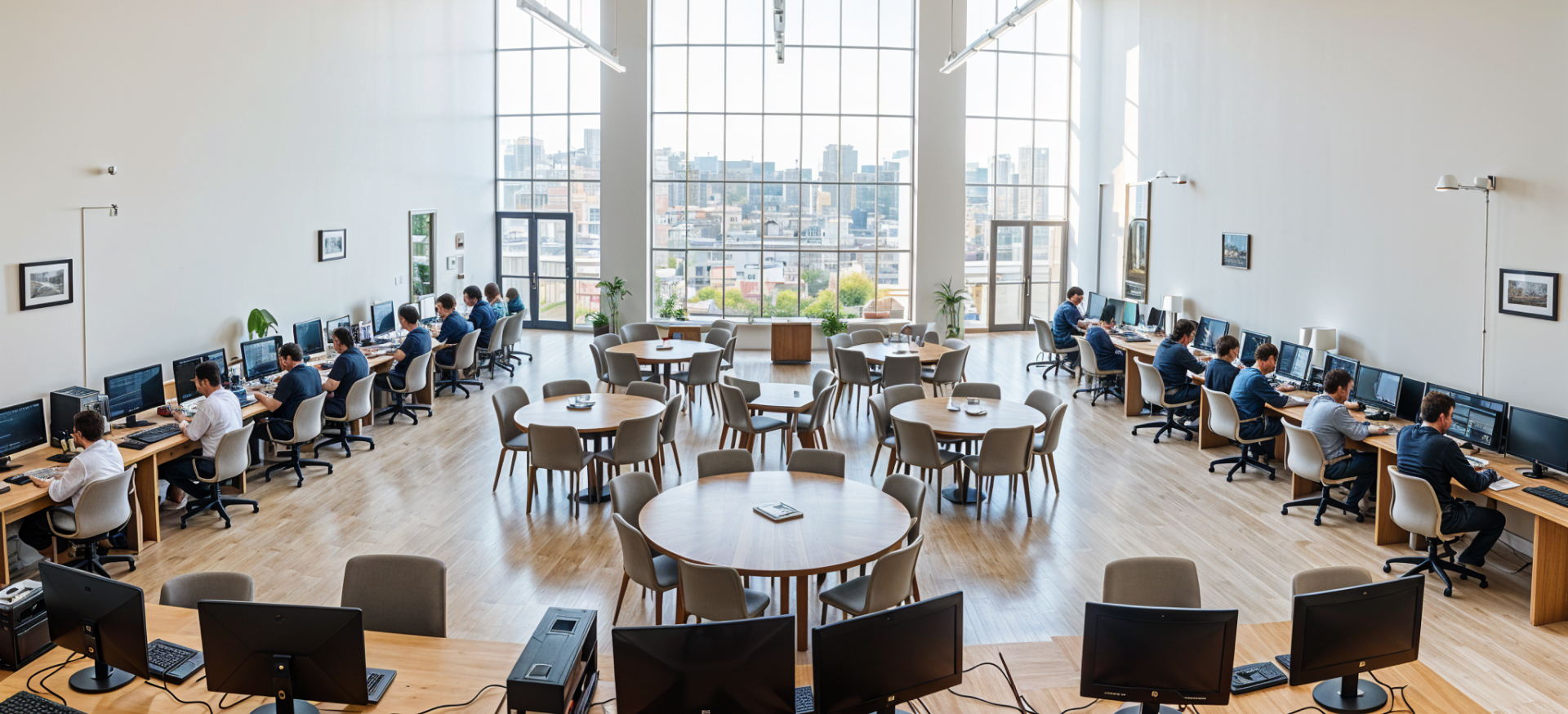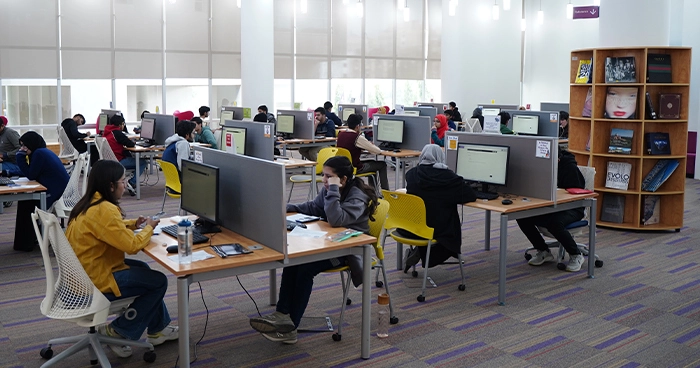Higher Education Crisis in the Global South: Why the World Needs Socially Conscious Thinkers

Higher education is often described as a ladder to opportunity. But in the Global South, and especially in Pakistan, this ladder is broken. The higher education crisis in Pakistan is a national emergency hiding in plain sight, entrenched in widening inequality, colonial legacy, policy neglect, and chronic underinvestment. What should be a foundational tool for empowerment has instead become an afterthought.
Pakistan’s GER in higher education is among the lowest in South Asia. If left unaddressed, this higher education crisis threatens to rob an entire generation of the knowledge and skills they need to lead, innovate, and sustain the nation in the decades to come. The time has come to rethink the purpose of university education: not just to produce workers, but to cultivate critical thinkers, ethical leaders, and agents of change.
Understanding the Higher Education Crisis in the Global South
More than a third of Pakistan’s children, around 25 to 26 million aged 5 to 16, or roughly 36–39% of that age group, are currently out of school. This alarming figure reflects not just a crisis in schooling but a broader and deeply rooted structural failure: in a country shaped by colonial educational models, economic inequity, and neglect. Pakistan’s educational infrastructure systematically shuts millions out before they even reach higher education, laying the groundwork for the major problems of higher education in Pakistan.
The core problems are widespread: school children living in rural areas, and some tehsils reporting out-of-school rates above 90%. Gender disparities further compound the issue, as girls account for 53% of those excluded from schooling. Even where children do attend school, they often face a severe lack of basic infrastructure such as electricity, clean water, and toilets. They are taught by undertrained or politically appointed teachers.
The reliance on outdated curricula and rote memorization leaves students ill-prepared for critical thinking or meaningful engagement with the world. Economic pressures, including child labor, force many children to prioritize survival over schooling, while a chronically underfunded education sector, receiving just 1.7% of the national GDP, far below the recommended 4%, fails to meet even the most basic learning needs. These conditions also feed into growing problems with the cost of higher education, which remains inaccessible for many due to high tuition fees and limited financial support.
These systemic flaws reflect deep-rooted challenges to higher education, compounding over time and resulting in a generation that enters university and eventually the workforce without the interdisciplinary knowledge, civic awareness, or problem-solving skills needed to address the pressing social challenges of our time.
Higher Education: Facing a Parallel Crisis
Even for those who make it past the initial barriers of the school system, higher education in Pakistan presents a parallel crisis. Participation remains low, with less than 12% of eligible youth enrolled in tertiary education in 2023, highlighting how inaccessible universities remain for the majority. Moreover, the system is marked by elitism, with quality higher education largely concentrated in urban, private institutions, leaving students from rural or lower-income backgrounds at a significant disadvantage.
This urban-rural and elite-public divide perpetuates existing social inequalities rather than addressing them. Compounding the issue is a fundamental disconnect between what universities teach and what society actually needs. These are not isolated shortcomings but part of deeper problems in higher education in Pakistan. Such
foundational flaws leave students unequipped for critical inquiry and civic responsibility, and graduates ill-prepared to navigate or transform the complex realities of contemporary Pakistan.
How Habib University is Reimagining Higher Education in Pakistan
 What, then, should be the purpose of a university in the Global South?
What, then, should be the purpose of a university in the Global South?
In the face of a growing higher education crisis, we need a radical shift from transactional
education that simply produces workers to transformational education that nurtures thinkers, leaders, and socially conscious citizens.
This requires decolonizing the curriculum by foregrounding indigenous knowledge systems and moving beyond rigid, one-size-fits-all
Western models. It also means promoting liberal arts and interdisciplinary learning that helps students connect the dots between disciplines, lived realities, and ethical frameworks. At a time when most institutions remain trapped in colonial legacies, Habib University, one of the best universities in Pakistan, offers a bold and necessary alternative.
The Yohsin Philosophy: Educating Whole Individuals
At the heart of Habib University’s educational mission lies the Yohsin philosophy, a deeply rooted value system that shapes every aspect of the university experience. Centered on five core principles of respect, service, empathy, passion, and excellence, Yohsin guides how students learn, grow, and contribute to society.
This philosophy encourages students to become more than just skilled professionals. It inspires them to be ethically grounded, intellectually curious, and socially responsible individuals who engage with the world with care and a sense of shared purpose.
A Holistic Liberal Arts Model
Habib University’s Liberal Arts and Sciences curriculum challenges conventional models of higher education in the Global South. By fostering interdisciplinary inquiry across fields such as political science, philosophy, computer science, design, and data science, it moves beyond colonial legacies of rote learning and rigid specialization.
This holistic approach nurtures critical thinking, creativity, and ethical engagement, empowering students to make sense of complex global challenges through multiple lenses, including intellectual, social, technological, and most importantly, human.
The Habib Liberal Core
At the heart of Habib University’s vision lies its Liberal Core curriculum, a decolonial, interdisciplinary response to the higher education crisis. Built around seven Forms of Thought and Action, the Core draws from both global liberal arts traditions and regional knowledge systems, weaving together rhetoric, philosophical inquiry, scientific reasoning, creative practice, and South Asian intellectual heritage.
The Core enables students to critique colonial legacies, engage with indigenous knowledge, and navigate complex modern challenges. It is designed to produce graduates who are not only academically capable but also intellectually independent and socially aware.
Habib University’s Generous Scholarship Programs
The Talent Opportunity, Promotion and Support (HU TOPS) program at Habib University brings to life this bold vision of equity and access. HU TOPS provides fully funded undergraduate education to meritorious students from all backgrounds, including those from the Federal Board and AKU-EB.
Selected scholars receive 100% financial support for four years, as well as access to world-class faculty, interdisciplinary learning, and a supportive academic community. HU TOPS breaks barriers, enabling deserving students to benefit from Habib University’s transformative education, regardless of their financial means.
Conclusion: Charting a Transformative Path Forward
To confront Pakistan’s higher education crisis and broader challenges to higher education, we need learning that is purposeful, inclusive, and deeply rooted in both quality and relevance. In a system where most universities replicate outdated models, Habib University is forging a path that is principled, inclusive, and deeply relevant to the challenges of the 21st century. Through initiatives like the Liberal Core and HU TOPS shows that when education centers local knowledge and global perspectives, it can bridge divides and drive systemic change.
The future of the Global South depends on institutions that dare to rethink education and on all of us to support and scale these visionary approaches.
Written by Inara Aman, Social Development and Policy, Class of 2028








